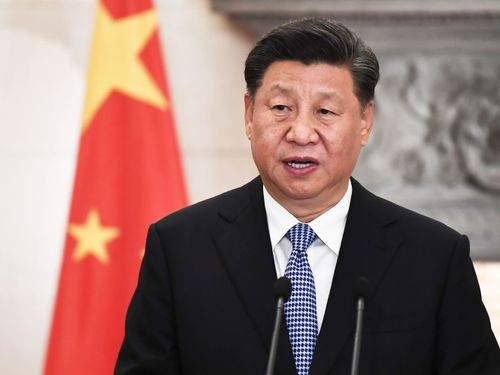China’s President Xi Jinping’s recent visit to Vietnam has sparked critical interest globally, marking an influential moment in the relationship between the two Asian nations.
Beyond customary diplomatic exchanges, this visit signifies a growing alliance with profound implications for the United States and its strategic interests in the region.
The evolving dynamics in Asia present a complex puzzle, with the US potentially caught in the middle of expanding China-Vietnam relations.
Diplomatic Chess Game Unfolds
Xi’s visit, the first in six years, carries notable weight amidst the United States’ concurrent efforts to declare influence in Southeast Asia.
This diplomatic encounter is actually more than a friendly meeting; it's a strategic move in the complex game of international relations.

As China and Vietnam, historically entwined in conflict and cooperation, draw closer, the United States finds itself navigating a dangerous balance of power in the region.
The growing relationship between Beijing and Hanoi exceeds mere ceremonial gestures. With China standing as Vietnam’s largest trading partner within the Association of Southeast Asian Nations (ASEAN), the stakes run high beyond surface-level diplomatic exchanges.
The economic interdependencies between these nations have been strengthening, evidenced by ASEAN recently surpassing the United States and the European Union as China’s primary trading partner.
The Tug of War for Regional Influence
In the midst of these developments, the United States has been actively cultivating ties with Vietnam.
President Joe Biden’s recent visit resulted in an upgraded “comprehensive strategic partnership” with Vietnam, a move that was cautiously approached by Vietnam earlier, mindful of Beijing’s reaction.
China, in response, demonstrated a multifaceted reaction during Xi Jinping’s visit. Drawing attention to robust trade and security ties, Xi Jinping also emphasized China’s global initiatives, a strategic step to counter perceived US "hegemony" and advocate for a more multipolar world order.
The visit yielded notable outcomes, with anticipated agreements in defense, trade, and infrastructure projects, including the Hanoi Light Rail Line 2 under China’s Belt and Road initiative, alongside strengthening cross-border transportation.
The strategic usage of historical and ideological ties with Vietnam is a notable aspect of this geopolitical tug of war. While the US capitalizes on the recent partnership, China reminds Vietnam of their shared communist roots, emphasizing common interests in counterbalancing US influence.
A Balancing Act in a Transformative Era
This relationship shift among China, Vietnam, and the United States mirrors the changing field of global politics.
Vietnam’s emergence as an important hub for manufacturers diversifying out of China grants it a unique position in the global supply chain. It's becoming an essential destination for Western companies aiming to bypass US sanctions on Chinese goods and for Chinese manufacturers reducing geopolitical risks.
For the United States, the strengthening ties between China and Vietnam pose both challenges and opportunities. While signifying a necessity for adjusted strategies in Southeast Asia, it also opens doors for cooperation in a region important for global economic and political stability.
As China extends its influence through initiatives like the Belt and Road and Digital Silk Road, and as the US endeavors to consolidate its presence in Southeast Asia, Vietnam’s role as a strategic partner assumes greater significance. However, the dance of diplomacy continues, with each nation playing a strategic role in this geopolitical field.




